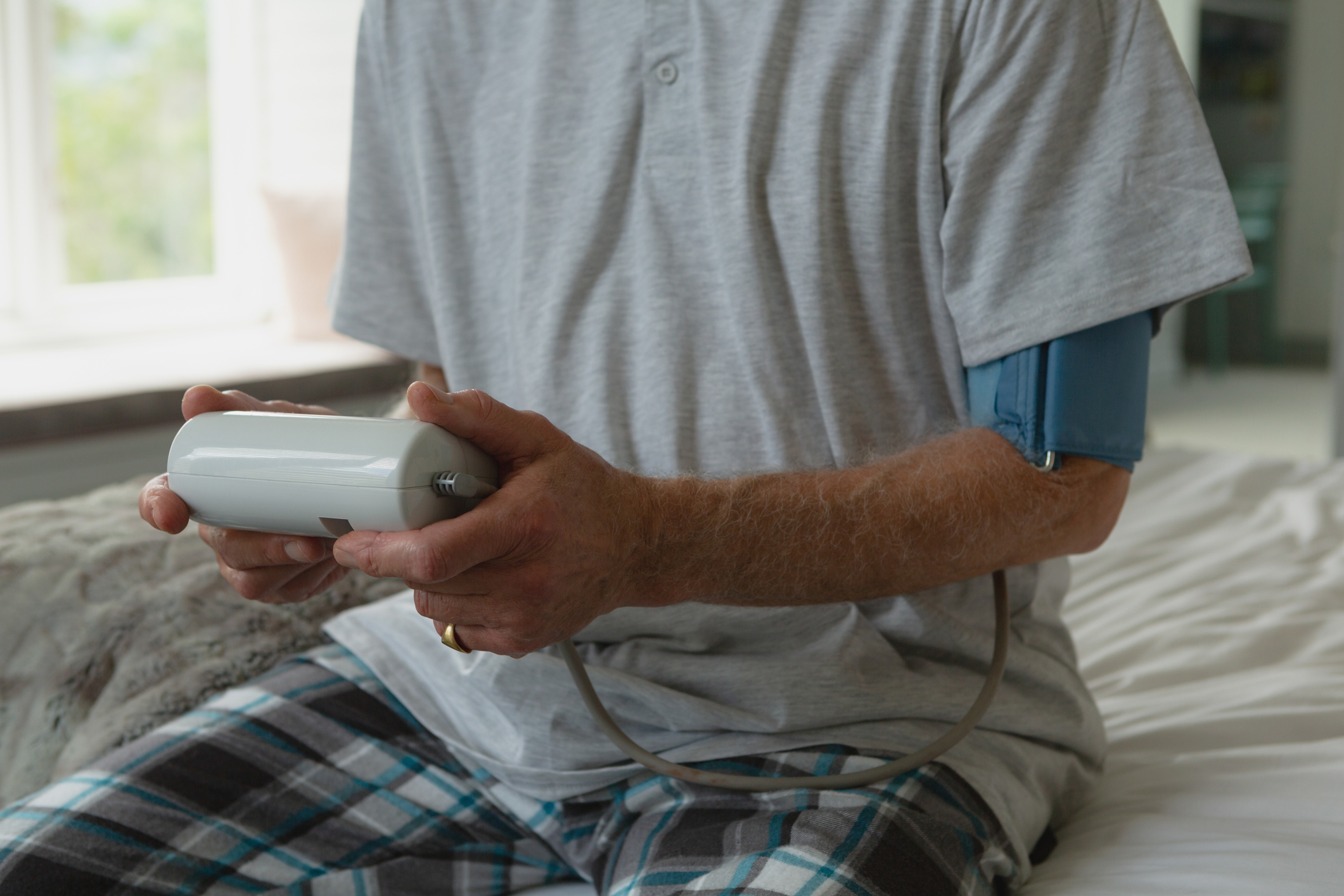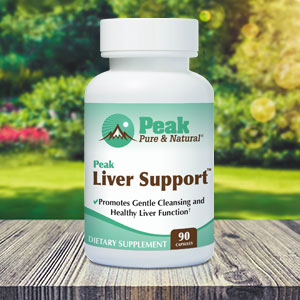Get Easy Health Digest™ in your inbox and don’t miss a thing when you subscribe today. Plus, get the free bonus report, Mother Nature’s Tips, Tricks and Remedies for Cholesterol, Blood Pressure & Blood Sugar as my way of saying welcome to the community!
The brain danger for men with nighttime hypertension

Normally, blood pressure follows a daily rhythm. It rises higher during the day and falls at night when we sleep.
But what does it mean if you consistently have higher blood pressure readings at night than during the day?
You could suffer from something known as reverse dipping — and face a higher risk of Alzheimer’s…
Nighttime hypertension and your brain
Under healthy conditions, blood pressure varies over 24 hours, with lower values at night. Compared to overall daytime blood pressure patterns, nighttime blood pressure is generally 10-20 percent lower during sleep.
But for some people, that pattern is reversed. Doctors refer to this phenomenon aptly as reverse dipping. Studies show that high blood pressure at night — or nocturnal blood pressure — has been linked to a higher risk of heart attack, stroke, heart failure and dementia.
Dementia is an umbrella term used to describe a group of conditions characterized by impairment of at least two brain functions, such as memory loss and judgment which interfere with daily life. And it appears reverse dipping can increase the risk.
Harmful effects of reverse dipping
Researchers at Uppsala University wanted to see how interference caused by nighttime high blood pressure impacts the brain.
“The night is a critical period for brain health. For example, in animals, it has previously been shown that the brain clears out waste products during sleep, and that this clearance is compromised by abnormal blood pressure patterns. Since the night also represents a critical time window for human brain health, we examined whether too high blood pressure at night, as seen in reverse dipping, is associated with a higher dementia risk in older men,” says Christian Benedict, Associate Professor at Uppsala University’s Department of Neuroscience
The results of their study are now published in the journal Hypertension.
The researchers used observational data that had been gathered in medical records from one thousand Swedish older men, who were followed for a maxim of 24 years and included men who were in their early seventies at the beginning of the study.
They discovered the risk of getting a dementia diagnosis was 1.64 percent higher among men with reverse dipping than men with normal dipping.
Reverse dipping primarily increased the risk of Alzheimer’s Disease which is the most common form of dementia. Christian Benedict, the senior author of this study stated the results need to be replicated in older women, and that next steps would also include investigating whether antihypertensive drugs at night could reduce the risk.
Check with a doctor if you suspect reverse-dipping
If you’re worried about high blood pressure or whether you could be a risk for reverse dipping, talk with your doctor. Severe obstructive sleep apnea is one condition that may increase your risk for reverse dipping. Your doctor may suggest wearing an ambulatory blood pressure monitor, which will measure your blood pressure over 24 hours.
It’s also important to take preventive measures such as eating a balanced diet and staying active to keep high blood pressure in check. Some research also suggests taking blood pressure medication later in the day.
Some natural solutions, like these 8 easy to find herbs, have been shown to help control blood pressure. But, specifically for nocturnal high blood pressure, some research has shown that supplementing melatonin may help reverse-dippers and non-dippers lower their nighttime blood pressure.
Editor’s note: There are perfectly safe and natural ways to decrease your risk of blood clots including the 25-cent vitamin, the nutrient that acts as a natural blood thinner and the powerful herb that helps clear plaque. To discover these and other secrets of long-lived hearts, click here for Hushed Up Natural Heart Cures and Common Misconceptions of Popular Heart Treatments!
Sources:
Higher blood pressure at night than in daytime may increase Alzheimer’s disease risk — EurekAlert!
Healthy Sleep Guide — WebMd














